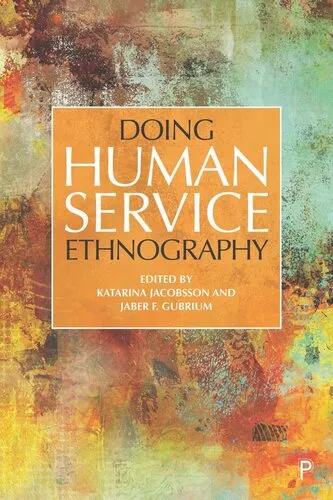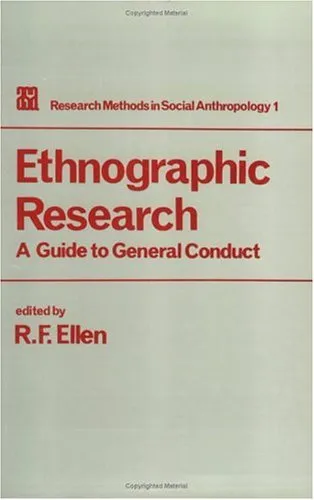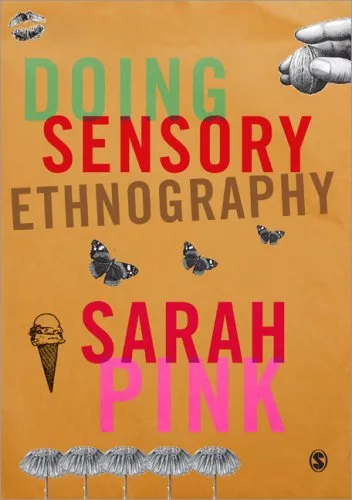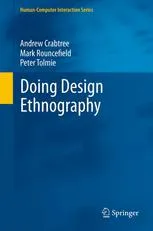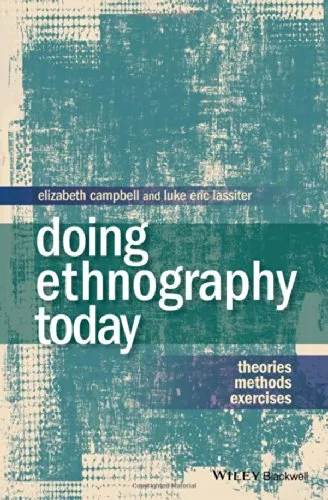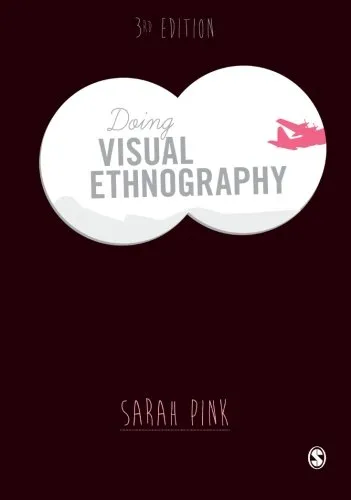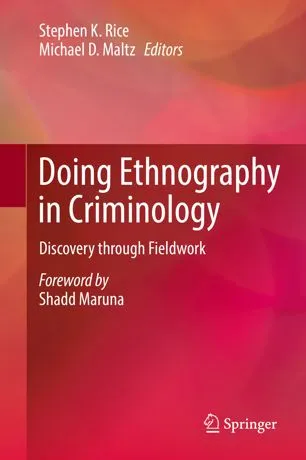Doing Human Service Ethnography
4.7
Reviews from our users

You Can Ask your questions from this book's AI after Login
Each download or ask from book AI costs 2 points. To earn more free points, please visit the Points Guide Page and complete some valuable actions.Related Refrences:
Introduction to "Doing Human Service Ethnography"
"Doing Human Service Ethnography," edited by Katarina Jacobsson and Jaber Gubrium, is a seminal work that delves into the intricacies of ethnographic research within the human services field. Combining theoretical insights with practical guidance, this book serves as a valuable resource for academics, practitioners, and students alike who are looking to explore how ethnography can illuminate the complexities of human service systems, relationships, and lived experiences.
Focusing on the intersection of ethnography and human services, this book highlights how researchers can capture the nuanced interactions, tensions, and challenges that occur within complex institutional settings. Jacobsson and Gubrium take readers on an engaging journey into diverse methodologies, ethical considerations, and practical approaches, offering a comprehensive framework for conducting ethnographic research in settings such as healthcare, social work, education, and beyond.
Detailed Summary of the Book
"Doing Human Service Ethnography" explores the practical and theoretical aspects of ethnographic research within the human services sector.
The book is organized into a series of chapters written by leading scholars in the fields of ethnography and human service research. Each chapter focuses on a specific aspect of applying ethnographic methodology to real-world human service contexts. The contributors skillfully examine how qualitative research can address the complexities of human emotions, organizational dynamics, and structural challenges inherent in social service settings.
The text covers topics such as:
- The role of reflexivity in ethnographic research and its implications for human services.
- Ethical dilemmas and strategies in navigating sensitive or vulnerable settings.
- The use of ethnography as a tool for uncovering "invisible" practices and narratives in institutional frameworks.
- Critical perspectives on power dynamics, social structures, and institutional policies explored through ethnographic methods.
The overarching goal of the book is to equip readers with the tools and mindsets necessary to capture the richness of human service environments, offering new ways of understanding and improving them.
Key Takeaways
- Ethnography’s Value: Ethnographic research provides unparalleled insight into the lived experiences of service users and providers alike, challenging dominant narratives and shedding light on overlooked perspectives.
- Navigating Complexity: The book emphasizes the importance of understanding the intricate web of relationships and systemic structures that define human service environments.
- Ethics as a Cornerstone: Readers are encouraged to deeply consider and address ethical issues inherent in studying vulnerable populations and sensitive subjects.
- Reflexivity in Research: By reflecting on their own biases and positionality, ethnographers can produce richer, more thoughtful analyses of human service systems.
- Transformative Potential: Ethnography not only helps us better understand human service practices but also serves as a platform for advocating systemic change and improvement.
Famous Quotes from the Book
"Ethnography is not merely a method; it is a way of seeing, interpreting, and engaging with the world." – Katarina Jacobsson
"Human services are as much about the organizational structures that shape them as they are about the people they aim to serve." – Jaber Gubrium
"Capturing the informal, everyday practices of service delivery reveals the tacit knowledge that forms the backbone of professional care." – Contributing Author
Why This Book Matters
Human services are at the core of efforts to address pressing societal issues such as inequality, healthcare access, and social welfare. "Doing Human Service Ethnography" stands out as a crucial contribution by providing researchers and practitioners with a framework to critically engage with these issues.
At a time when evidence-based practice is heralded as the standard, the book demonstrates how ethnography complements quantitative approaches by delivering richly contextualized, human-centered insights. It bridges the gap between theory and practice, offering not just a methodological toolkit but also a lens through which to critically analyze and improve human service systems.
Furthermore, the book challenges readers to consider their own roles and responsibilities in shaping ethical and transformative research practices. Whether you are a seasoned ethnographer or new to qualitative research, this book equips you with both the theoretical grounding and the practical tools to embark on meaningful investigations in the human services sector.
Free Direct Download
You Can Download this book after Login
Accessing books through legal platforms and public libraries not only supports the rights of authors and publishers but also contributes to the sustainability of reading culture. Before downloading, please take a moment to consider these options.
Find this book on other platforms:
WorldCat helps you find books in libraries worldwide.
See ratings, reviews, and discussions on Goodreads.
Find and buy rare or used books on AbeBooks.
1193
بازدید4.7
امتیاز0
نظر98%
رضایتReviews:
4.7
Based on 0 users review
Questions & Answers
Ask questions about this book or help others by answering
No questions yet. Be the first to ask!
